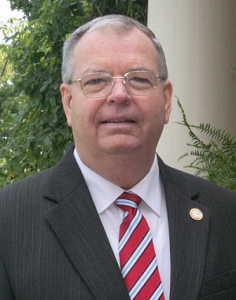 Today I’m giving a shout-out to my friend and colleague, John Eggers. About 10 years ago, John and I worked together on a needs assessment for the corrections field, to shape the focuses of our agency, the National Institute of Corrections (NIC). John came to NIC from the Nebraska corrections system with assignments in designing and delivering executive training. Today John trains and works in organizational development consulting via his company, Transitional Goal Achievers, LLC.
Today I’m giving a shout-out to my friend and colleague, John Eggers. About 10 years ago, John and I worked together on a needs assessment for the corrections field, to shape the focuses of our agency, the National Institute of Corrections (NIC). John came to NIC from the Nebraska corrections system with assignments in designing and delivering executive training. Today John trains and works in organizational development consulting via his company, Transitional Goal Achievers, LLC.
I asked John to describe what he does. He said, “I help organizations develop managers into leaders. Leaders need to able to handle complexity and have a lot of self-knowledge. They either add value to their organization or take it away. Good leaders create satisfied employees, they understand the importance of employee well-being, and they create a stronger future for the organization.” He added, “Another area where I focus is work process analysis—helping organizations become more efficient, productive, and cost-effective.”
My next question was, “Why do you do it?” John said, “I get a lot of satisfaction from seeing my clients become enthusiastic about developing their employees and truly understand how important that is. And I find it rewarding when my clients’ organizations succeed by working smarter and becoming more productive and efficient.”
John gave me two examples of how he knows what he does is working. A manufacturing client used John’s input to go international with their product. Several correctional agencies up-leveled their succession planning with John’s help and were prepared for the retirements of their top leadership.
John wants people to know that for any organization to be successful, its leaders must focus on the psychological and physical well-being of the employees. When managers and leaders don’t take care of their followers, those staff members will leave; it’s just a matter of time. Especially in corrections work, John said, it’s important to create a healthier and more positive work environment where individuals and teams can flourish, rather than be stuck with the belief that “the status-quo is good to go.”
I asked John, what’s the big picture here; why should people care about prison management? He said, “Prison management, or perhaps better put, ‘prison leadership,’ is a systems undertaking that impacts societal issues and concerns. It requires leaders who are ready, willing, and able to take on these issues and make a positive difference in this part of our U.S. justice system.”
Thanks, John, for contributing to better correctional leadership and practice. Carry on and keep making the world a better place in 2019.
This article was first posted on LinkedIn on December 19, 2018.